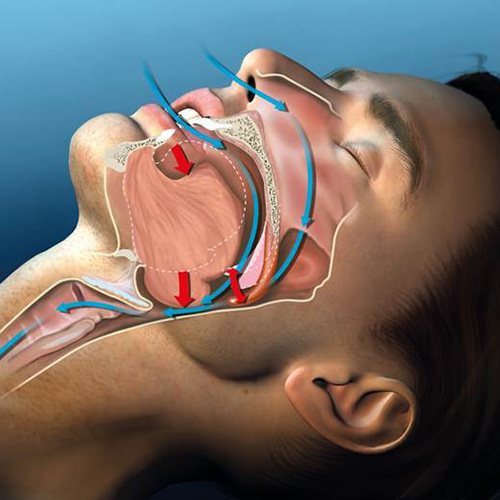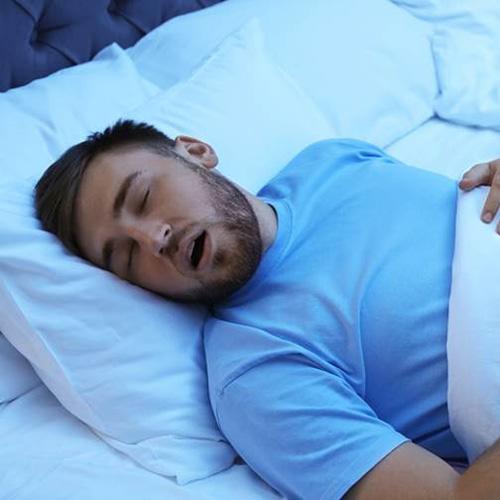Obstructive sleep apnea in Boca Raton, often referred to simply as OSA, is a disorder marked by repeated pauses in breathing, called apneas, that occur during sleep. The apneas are caused by a blocked upper airway. According to one estimate, around 22 million Americans suffer from this condition, with many of those cases remaining undiagnosed.
Here at Florida Dental Sleep Disorders, Dr. Mogell and our team aim to help members of our community find freedom from this burdensome problem. Read on below to learn more about OSA and your potential treatment options.
What Causes Obstructive Sleep Apnea?

A number of different issues can cause airway blockages that are the hallmark of obstructive sleep apnea in Melbourne. For example, a deviated septum can contribute. Other anatomical abnormalities, such as a narrow jaw, can also be part of the problem. In many cases, excess fatty tissue around the neck is to blame.
Depending on how severe a person’s OSA is, they may experience apneas anywhere from a few times each night to hundreds of time each night.
Possible Complications of OSA

Obstructive sleep apnea in Vero Beach might seem like nothing more than an annoyance, but it can lead to serious, and in some cases, life-threatening, complications, including:
- A heightened risk of drowsy driving and motor vehicle accidents
- Workplace accidents
- Stroke and heart attack
- Hypertension (high blood pressure)
- Type 2 diabetes
- Heart disease
- Severe fatigue
- Irritability, moodiness, and emotional disorders
- Unwanted weight gain
- Bedwetting
- Sexual dysfunction
- Headaches
When Should I See a Doctor?

Here are some indications that you may need to get tested for OSA:
- You snore loudly and frequently
- A loved one has observed you stop breathing while you are asleep
- You sometimes wake up gasping for air
- You always seem to be tired despite spending 8 hours or longer in bed
Once you have been diagnosed with OSA, you can visit Dr. Mogell and our team at any of our three convenient locations to learn about your treatment options.
Types of Treatment for Obstructive Sleep Apnea

Fortunately, obstructive sleep apnea is highly treatable. Here are a few ways in which it may be addressed:
Oral Appliance Therapy
An oral appliance is a small device that resembles a mouthguard worn for sports. It gently repositions the jaw in order to allow for easier breathing. Unlike other treatment options, it is convenient, highly portable, and noninvasive. It is also much better tolerated than the most popular way to address sleep apnea, CPAP therapy. Dr. Mogell is proud to feature oral appliance therapy in his practice.
Continuous Positive Airway Pressure (CPAP) Therapy
A CPAP machine forces air into the throat in order to prevent blockages that interfere with breathing. While this therapy can be quite effective, many patients dislike it because of the mask, wires, hoses, noise, and general discomfort that come with the machine.
Surgery
In extremely severe cases of OSA, surgery might be recommended. This can address anatomical issues that regularly interfere with smooth breathing. Because surgery is inherently risky, it is typically recommended only if other treatment options have been exhausted.

